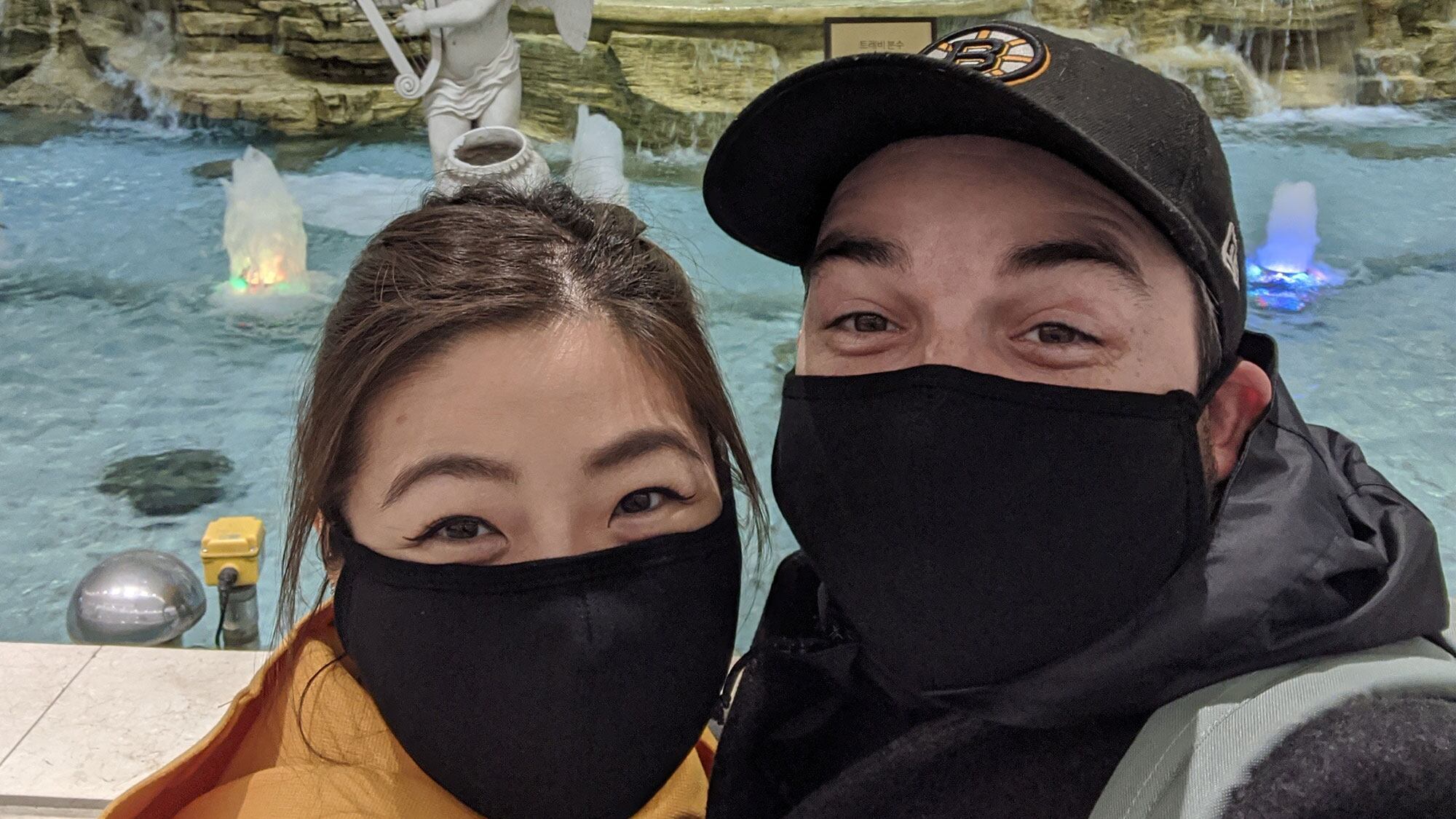Kennedy Bacheller, 30, was halfway through her honeymoon when she realized she almost certainly had been exposed to coronavirus.
She and her husband, Brent Bacheller, had traveled to Tokyo and Seoul. On Feb. 21, the day after the newlyweds arrived in South Korea, they began getting text notifications from the Korean government on their phones about the virus's spread throughout the country. "There was no way," Kennedy Bacheller realized, "we wouldn't end up getting it."
They returned home Feb. 27. When they landed in Los Angeles, they were met with no quarantines, heat maps or tests offered to those who might have the virus. And at Portland International Airport? Not even a sign with a written warning.
That evening, the Bachellers took an Uber to their home in Beaverton. They haven't left the house since. And they don't plan to leave for two weeks.
On March 1, Brent Bacheller, 33, started developing flu-like symptoms. That day, the couple called a nurses' hotline operated by Kaiser Permanente. A nurse put them on hold for a minute and came back to tell them that since he didn't have a fever, he didn't meet the threshold for coming to the hospital or getting tested for COVID-19.
But fearing they were carriers of the virus, the newlyweds had already decided to take a drastic step: They voluntarily quarantined themselves.
"No one has said, 'Hey, you two should stay at home for two weeks,'" Kennedy Bacheller says. "But we're doing everything we can not to spread coronavirus. That can't be said for the hundred-odd people who were on the plane with us."
The Bachellers' story highlights what has become increasingly clear since coronavirus officially arrived in Oregon on Feb. 28: Neither federal nor state officials are tracking how many people have been exposed—and people with symptoms have little idea whether they should report them or get tested.
For every person like the Bachellers who chooses to stay away from others, there could be dozens who have gone about their typical routines even after overseas travel. Neither the U.S. government nor Oregon officials have done anything to curb their movements.
As of press time, the three Oregonians who tested positive for the virus had not traveled outside the country and were apparently infected stateside.
The 115 people the Oregon Health Authority says it is monitoring for the virus may represent a fraction of the actual cases.
"I am 90 percent-plus sure that it is the tip of the iceberg," says Ken Stedman, a biology professor who specializes in virology at Portland State University. Stedman says he suspects the virus has been active in Oregon for several weeks, given that positive test results are just now showing up.
State health officials have sought to reassure the public the illness is not widespread. On a recent conference call with reporters, Dr. Dean Sidelinger of the OHA said, "We are testing individuals who were potentially exposed to COVID-19 and are showing symptoms." He added that the agency was also testing those who recently traveled to affected countries.
Brent Bacheller checks both of those boxes. But when he called Washington County health officials (the same day he contacted Kaiser) to report his symptoms and recent travel history, no one answered. He left a voicemail and has yet to hear back.
Christopher Ingersoll, a spokesman for the Oregon Health Authority, tells WW the U.S. Centers for Disease Control and Prevention are responsible for communicating the names of people who recently traveled from affected countries.
"The OHA is not tracking people's flights," Ingersoll says. "If we weren't notified by CDC that they were returning, we would have no reason to contact them."
Jonathan Modie, the top OHA spokesman, says it's possible the state government isn't aware of every Oregon resident who's recently traveled to an affected country. "We don't exactly know where the cracks in the armor might be," Modie says. "That could be a question for the CDC."
Ingersoll adds that despite developing symptoms and having recently been in an affected country, Brent Bacheller doesn't need to be tested for coronavirus, and it's best for him to stay self-quarantined for two weeks.
"It's kind of like the flu: The best advice is to stay at home," Ingersoll says.
The Bachellers have that luxury. Kennedy Bacheller works from home as a freelance project manager. Brent Bacheller is a senior digital designer at Nike, which allows workers returning from coronavirus-affected countries to work from home.
The newlyweds say they are committed to staying quarantined for 14 days straight. Brent Bacheller left the house once to get the mail. Their three-bedroom home also has a backyard, so the couple and their two dogs can go outdoors.
The couple's roommate left the house before the Bachellers returned from Seoul, and she doesn't plan to come back for at least a few weeks out of fear she, too, could contract the virus.
"Obviously, it's just a matter of time before the coronavirus rapidly spreads in the U.S.," Kennedy Bacheller says. "Yes, we might be hypervigilant, but I'd rather be safe than sorry."
Supplies at the Bacheller home are running low. Kennedy Bacheller says she has things like peanut butter and jelly but no bread, and pasta but no pasta sauce.
They're on day six of 14.
Still, Kennedy Bacheller is wary of ordering grocery delivery. Even that, she fears, could lead to her contaminating delivery workers.
She doesn't think she's being overly cautious. Even if, after all of this, she and her husband were never carriers of the virus, she says it's better to err on the side of caution—because their choices could affect people much more vulnerable than they are.
"I've been making a joke to my husband," Bacheller says, "that it's kind of a test for us to see what would happen if we were in the apocalypse."
